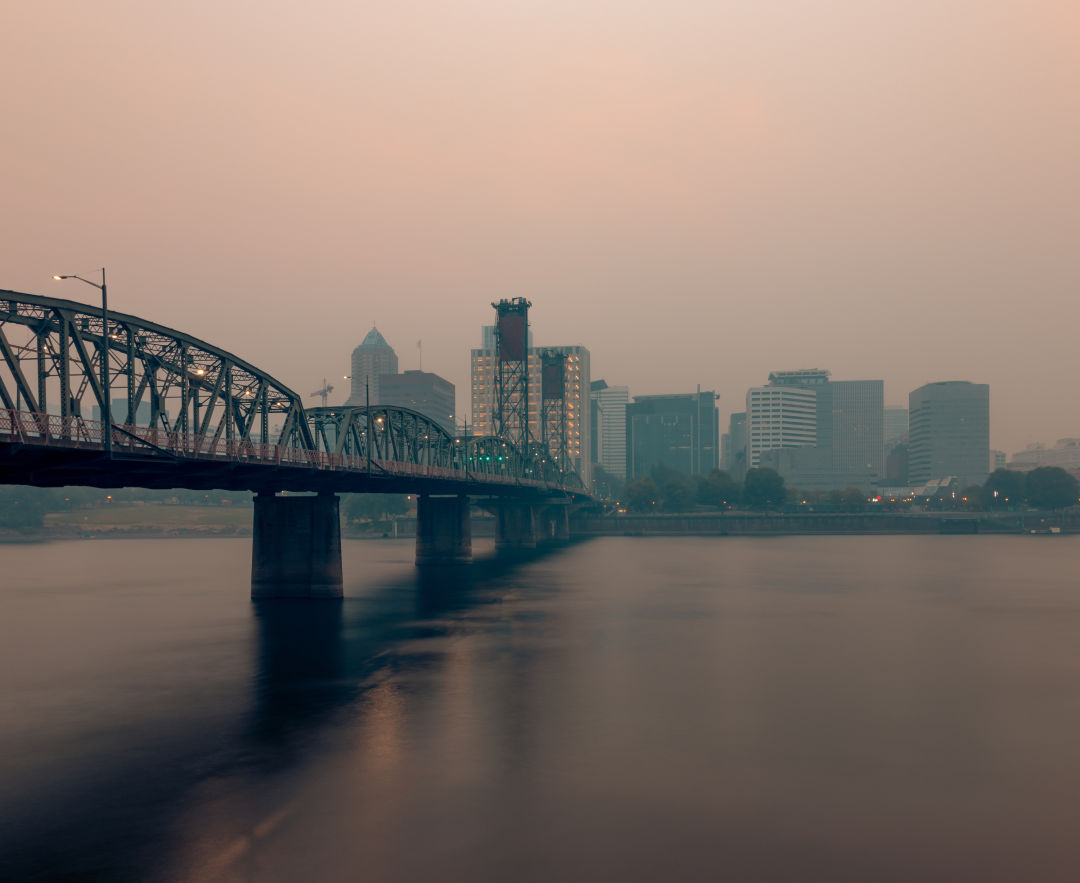How to Keep Your Indoor Spaces Smoke-Free

Image: Tony Prato/Shutterstock
Hi, and welcome back to March, where all outdoor public spaces are closed, and you’re again encouraged to stay in your four walls. Yes, this is a scary time. Again.
In Multnomah County, which has so far not seen any evacuations, we should keep things in perspective: Many Oregonians have already lost their homes and their communities, thousands more have been evacuated, and a million acres have burned. (For ways to support firefighters and affected communities, check our guide here.)
But we can still take precautions against the thick layer of smoke hanging over the city. (Portland currently has the worst air quality of any major city in the world, due to the fires.) Luckily, the smoke may not get much worse, at least according to Jeff Gaines, Fire Captain Paramedic for the City of Vancouver Fire Department since 1997.
“I think this is on the ebb, in general. I think that this fire event is more on the mop-up stage," he says. "Everything is about the weather, and with the wind dying down and humidity back up, that puts it in the firefighters’ favor.”
Gaines still warns against going outside, saying that prolonged exposure may cause “lung soreness,” the best way he could describe it as your lungs contain no nerve endings. He also advocates for the air filtration system: “If you have an HVAC system with a HEPA filter, you have a big advantage because it will filter your air and create some positive pressure within your house to help keep the smoke out.”
But for those without and unable to get one, Gaines recommends all the below methods, or heading to a friend’s house or a designated shelter in a less smoky area. Since you’ll be spending more time indoors, here’s some more basic tips from the EPA to keep the air in your house purer than the air outside:
- Keep windows and doors closed
- Shut off any ventilation systems you may have
- Use fans or air conditioning to stay cool
- If you have an HVAC system with fresh air intake, set it to a recirculate mode
- If you have a window AC system, close the outdoor damper
- Consider purchasing a High Efficiency Particulate Air (HEPA) filter
- Limit the creation of indoor particles, such as with smoking cigarettes, lighting candles, frying food, or using a gas stove
- Obtain N95 or P100 respirators, as shown here
- Keep your indoor spaces clean
The Centers for Disease Control also advises against vacuuming and indoor fireplace use.




